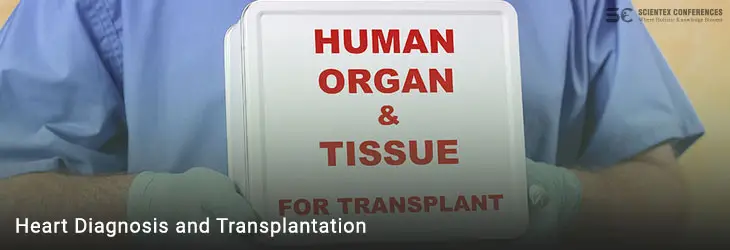Track: Heart Diagnosis and Transplantation

Heart Diagnosis employs a variety of techniques and procedures to effectively identify cardiovascular problems. Non-invasive approaches include echocardiography, electrocardiograms (ECGs), and stress testing, as well as more modern imaging techniques like cardiac MRI and CT scans. Effective diagnosis is critical for understanding the underlying causes of symptoms, monitoring heart function, and developing suitable treatment regimens.
A heart transplant is a surgical procedure that replaces a failing or badly damaged heart with a healthy donor heart. It is often recommended for patients with end-stage heart failure or serious heart problems that have not responded to previous therapy. The approach includes a thorough review to ensure compatibility and fix any potential issues. Immunosuppressive medication to avoid organ rejection is part of post-transplant care, as is continuing monitoring to ensure heart function and overall health. Heart transplantation can greatly improve the quality of life and survival rates for people with severe cardiovascular disease.
Here is the short version of these topics:
- Electrocardiogram (EKG)
- Echocardiogram
- Ambulatory Monitoring
- Ankle Brachial Index (ABI)
- MR Angiogram
- Cardiac Magnetic Resonance Imaging
- Cardiac Computerized Tomography Scan
- Advanced Heart Failures and Heart Transplantations
- Advanced Lung Failure and Lung Transplantations
- Innovations in Cardiac Imaging
- Non-Invasive Diagnostic Techniques
- Biomarkers in Heart Disease Diagnosis
- Heart Transplantation Indications and Contraindications
- Complications of Heart Transplantation
- Long-Term Outcomes of Heart Transplant Recipients
- Donor Heart Selection and Management
- Innovations in Transplant Surgery
- Pediatric Heart Transplantation
- Mechanical Circulatory Support
- Post-Transplant Monitoring
- Ethical Issues in Heart Transplantation
- Role of Artificial Hearts
It should be noted that heart transplantation is a complicated treatment with restricted availability due to a scarcity of donor organs. Depending on the patient's condition, different treatments such as medication, lifestyle changes, or additional surgical interventions may be considered. Medical technology and research advancements continue to improve the diagnosis and treatment options for cardiac disorders.
Scientific Highlights
- Cardiovascular Diseases
- Cardio Oncology
- Pediatric Cardiology & Congenital Heart Diseases
- Thoracic and Cardiovascular Surgery
- Hypertension and Cardiac Regeneration
- Interventional Cardiology and Cardiac Imaging
- Women and Fetal Cardiology
- Diabetes, Obesity and Stroke
- Vascular Surgery and Vascular Biology
- Molecular and Geriatric Cardiology
- Cardiac Nursing and Critical Care Cardiology
- Arrhythmias and Electrophysiology
- Cardiovascular Pharmacology and Toxicology
- Cardiac Immunology and Bleeding Disorders
- Heart Devices
- Heart Diagnosis and Transplantation
- Cardiovascular Impact of COVID 19
- Preventive Cardiology and Lipidology
- Cardiomyopathies and Heart Failure
- Current Research in Heart & Cardiovascular Disease
- Cardiovascular Anaesthesiology and Endocrinology
- Case Reports on Clinical Cardiology
- Internal and Emergency Medicine


